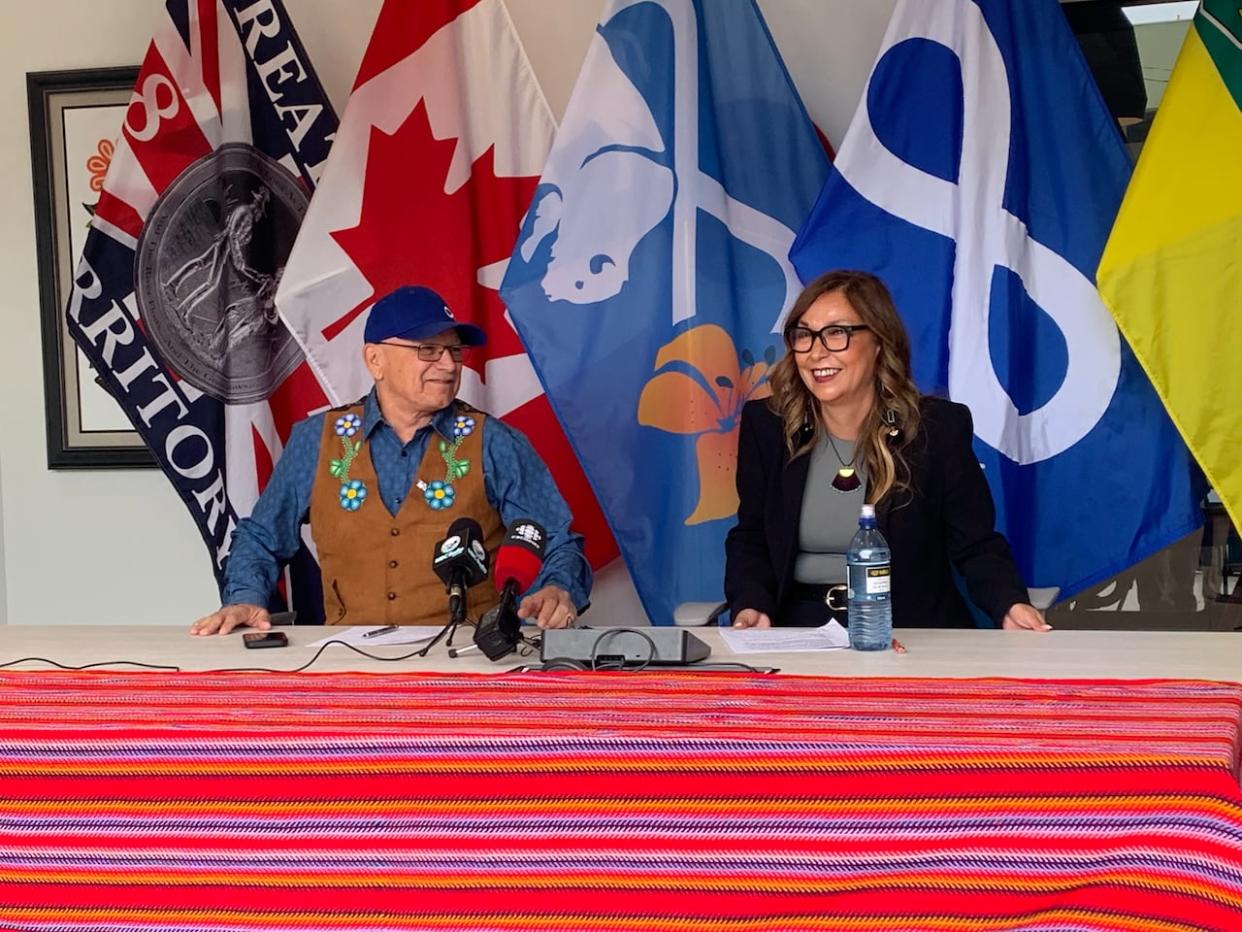Métis Nation-Saskatchewan will tour proposed treaty across the province this summer

Métis citizens in Saskatchewan will vote on a new, modern treaty with Ottawa as early as this fall.
The Métis Nation-Saskatchewan (MN-S) will take the proposed treaty with the federal government to its citizens across the province this summer. The governing body for Métis citizens says elders gave the treaty its name: "Kischi mashinahikan ooschi Michif," or "The Sacred Document of the Michif."
Years of negotiations led up to the announcement, which included a self-government implementation agreement signed in 2023.
MN-S vice-president Michelle LeClair said the struggle for Métis self-determination goes back much further.
"It's 150 years in the making where our communities have fought and died for this very thing that we're doing today. It's historic and it's our time," LeClair said at a media event in Saskatoon on Monday.
The MN-S is sending teams into communities this summer to to explain the document ahead of an all-member vote this fall. Ratification requires 75 per cent approval from voting members.
"This is so crucial for all our citizens to participate in the decision-making for the best interests of our Métis people here," said MN-S president Glen McCallum. "It gives them the opportunity to be able to say their piece."
If signed by Ottawa, a treaty would establish the MN-S as an Indigenous government in a nation-to-nation relationship with Canada.
"Then it's a constitutionally protected document," LeClair said. "It doesn't matter what government flows through, goes out, comes in. We are protected as self-governing people through this sacred document."
The proposed treaty is not public, but will be released in the coming months. If members approve the treaty, the federal government could introduce implementation legislation in early 2025, according to an MN-S news release.
A modern treaty with the federal government will establish self-government for Saskatchewan Métis, and specific rights and responsibilities for both sides. With a signed treaty, a Métis government can create its own laws and establish services such as education and childcare, previously under provincial or federal jurisdiction.
"All those battles that we've had as Métis people going throughout the years, it is finally coming to the point where this is putting [Louis] Riel's dream, Gabriel Dumont's dream, Jim Sinclair's dream, Harry Daniels's dream into action," LeClair said. "And so this is our moment to do that and we're really, really excited."
The implementation agreement signed in 2023 led to the federal Bill C-53, but in April this year the MN-S withdrew support for the legislation that would create self-government agreements with Métis in Saskatchewan, Alberta and Ontario. The MN-S said the "one size fits all" legislation isn't ideal for its citizens.
Bill C-53, which would recognize the Métis political associations in Alberta and Ontario as Indigenous governments, passed second reading in Parliament but its future is in question without MN-S support.


